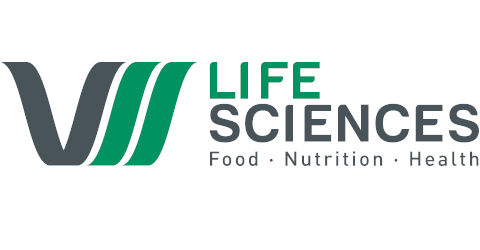Media library Ernährungsradar

What is nutrition communication and how can it be implemented?
This interview with Jun.-Prof. Dr. Tina Bartelmeß from the University of Bayreuth deals with nutrition communication. What is nutritional communication, what role do the media play, how can nutritional communication contribute to people eating healthier, and how can different parts of the population be reached? Those are some of the questions that will be discussed. The interview was conducted by the Akademie für Neue Medien (Bildungswerk) e.V. and the University of Bayreuth for the project Ernährungsradar.
Click here for the video podcast (in German)
Further information and literature on the video

Genome editing and green genetic engineering: a future for sustainable food production?
This interview with Prof. Dr. Stephan Clemens from the University of Bayreuth deals with the opportunities offered by genome editing and genetic engineering in food production. Our current diet is based on cultivated, i.e. genetically modified, crops. In order to counteract advancing climate change and feed a growing global population, new methods for sustainable food production will be needed in the future. Genome editing processes using the so-called CRISPR/Cas method and green genetic engineering offer opportunities to significantly complement classic breeding. The interview was produced by the Akademie für Neue Medien (Bildungswerk) e.V. and the University of Bayreuth for the project Ernährungsradar.
Click here for the video podcast (in German)
Further Information and literature on the video
Nudging: How our environment influences our diet
The interview with former Jun.-Prof. Dr. Laura König from the University of Bayreuth is about nudging. A change in the environment, e.g. in the kitchen or in the supermarket, can influence the food choices of consumers towards a healthier alternative. Whether a change in behaviour lasts in the long term has not yet been clearly proven. The interview was produced by the Akademie für Neue Medien (Bildungswerk) e.V. and the University of Bayreuth for the project Ernährungsradar.
Click here for the video podcast (in German)
Further information and literature on the video

Fructose in the diet – health aspects of sugar consumption
The interview with Prof. Dr. Janin Henkel-Oberländer from the University of Bayreuth is about fructose in the diet. Fructose is considered in the context of various other sugars, and health aspects of sugar consumption are highlighted. The interview was produced by the Akademie für Neue Medien (Bildungswerk) e.V. and the University of Bayreuth for the project Ernährungsradar.
Click here for the video podcast (in German)
Further information and literature on the video
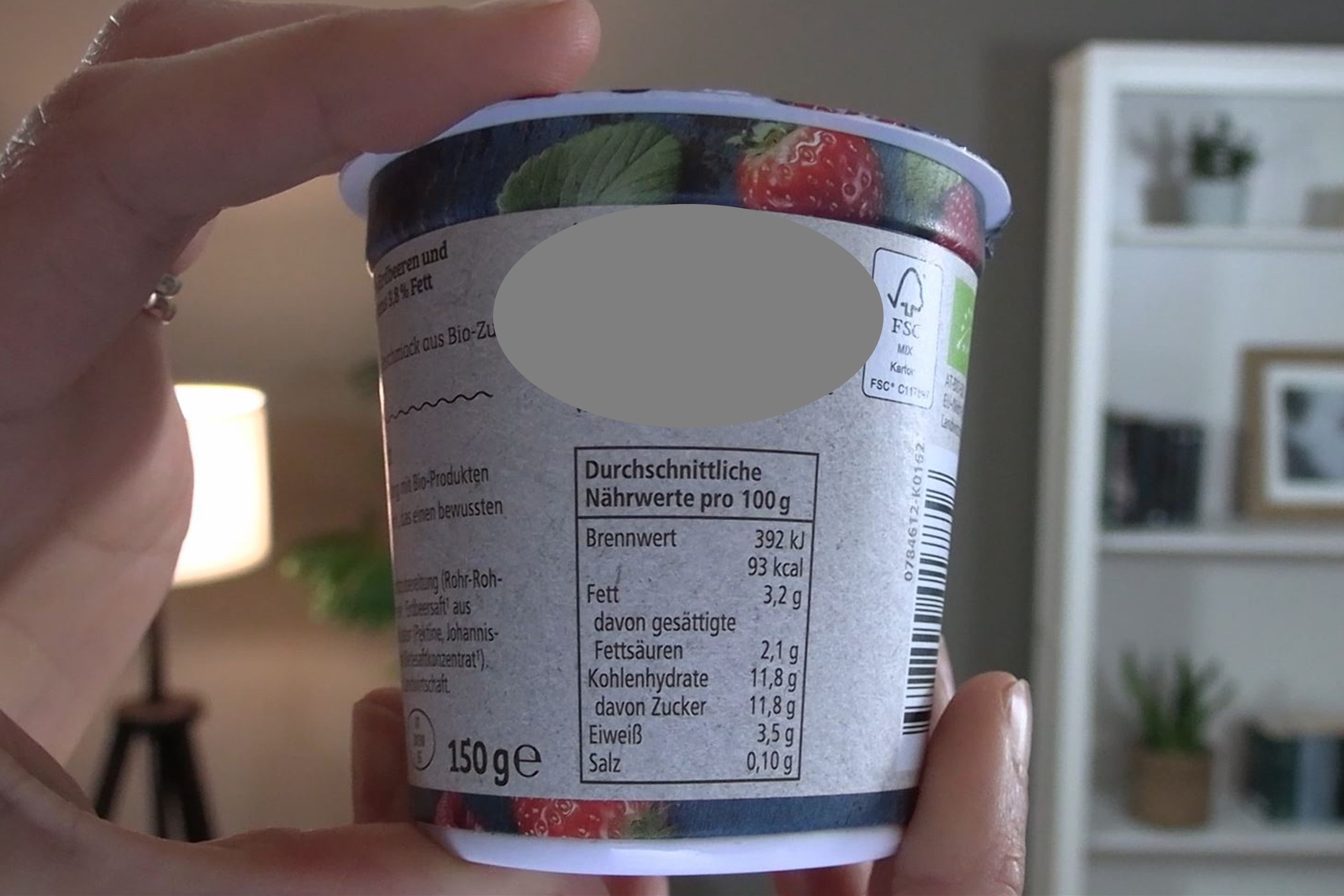
Strategies and options for reducing sugar consumption
Our sugar consumption is well above the recommended amount, but we can skilfully reduce our consumption in everyday life.
According to the World Health Organization (WHO) and German professional societies, a maximum of 10 percent of our daily energy intake should consost of free sugars. Free sugars include sugars that manufacturers or consumers add to foods and beverages as well as sugars naturally present in honey, syrup, fruit juices and fruit juice concentrates.
Click here for the explainer Video (in German)
Further information and literature on the video
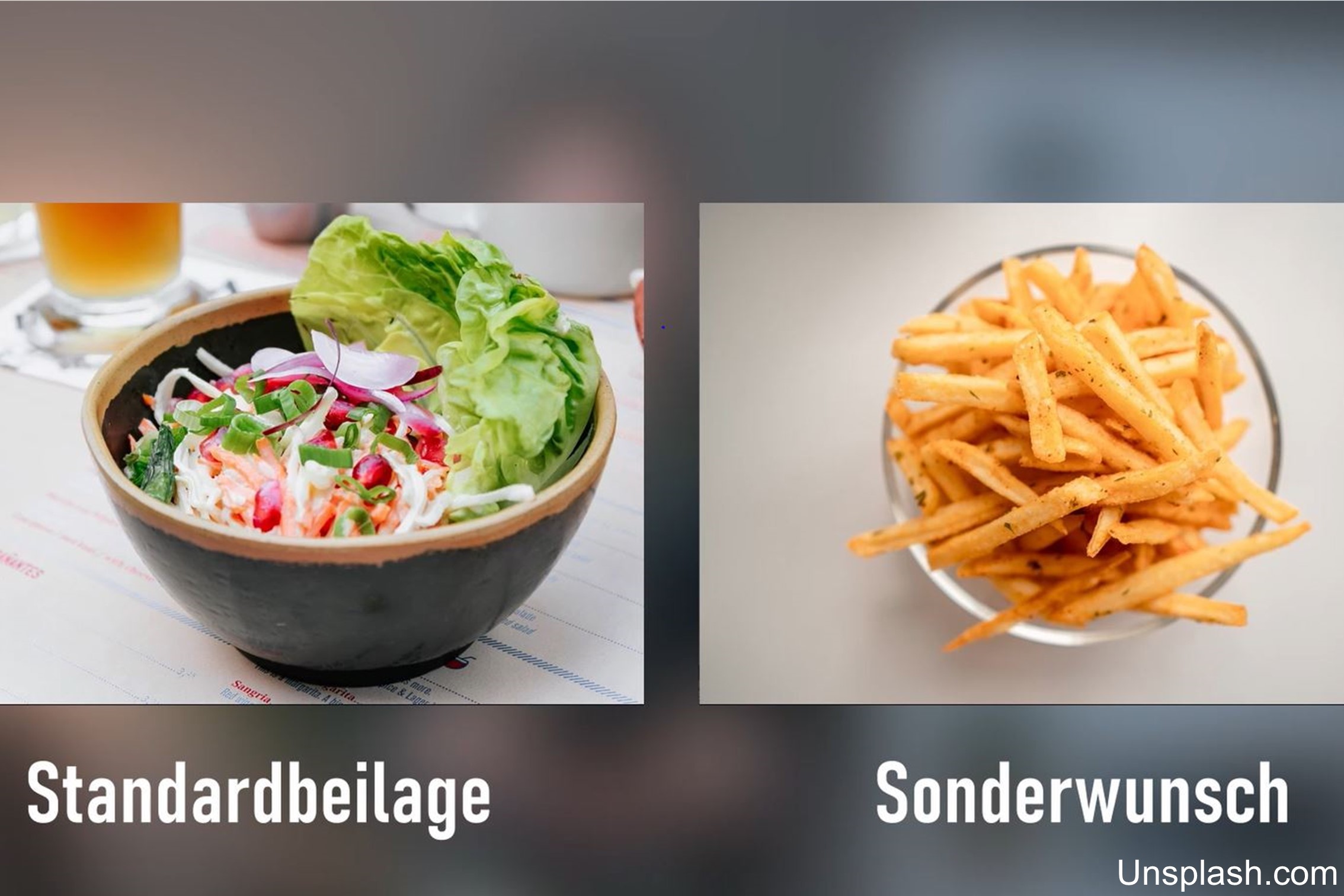
Nudging - How the environment influences our eating behaviour
Nudging strategies specifically vary our environment and can also have a positive influence on our everyday eating behaviour.
Our habits and our environment have a great influence on how we eat. Today we're talking about how this can be used, for example in canteens or cafeterias, to encourage us to eat healthier.
Click here for the explainer video (in German)
Further information and literature on the video
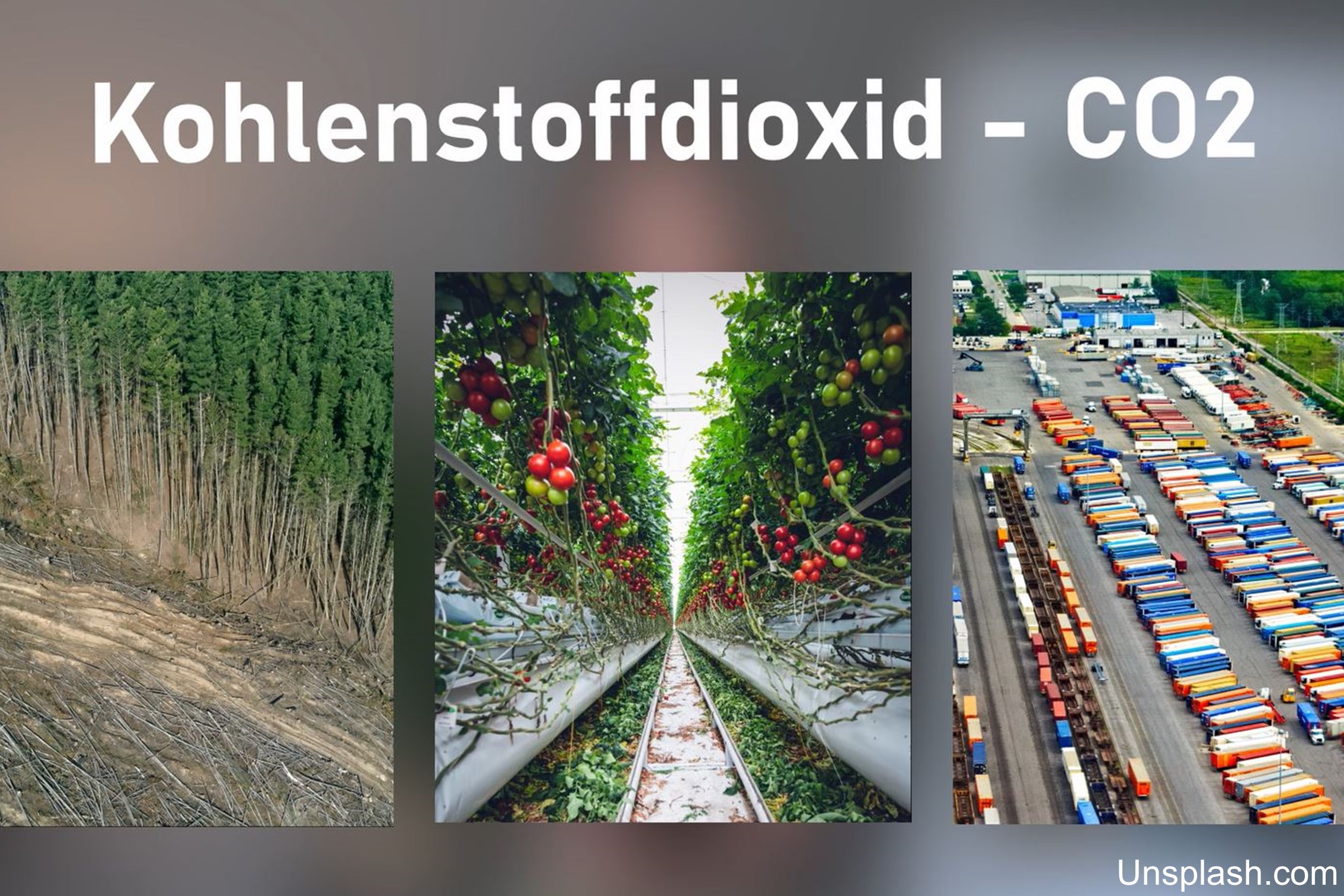
How does our diet affect the climate?
As our purchasing and eating habits have a strong impact on the climate, a climate-friendly diet is therefore particularly important.
According to the Intergovernmental Panel on Climate Change, the global food system is responsible for about a quarter to a third of all greenhouse gas emissions caused by humans. In addition to carbon dioxide, the two climate gases methane and dinitrogen monoxide, also known as laughing gas, are produced during the production of food.
Click here for the explainer video (in German)
Further information and literature on the video
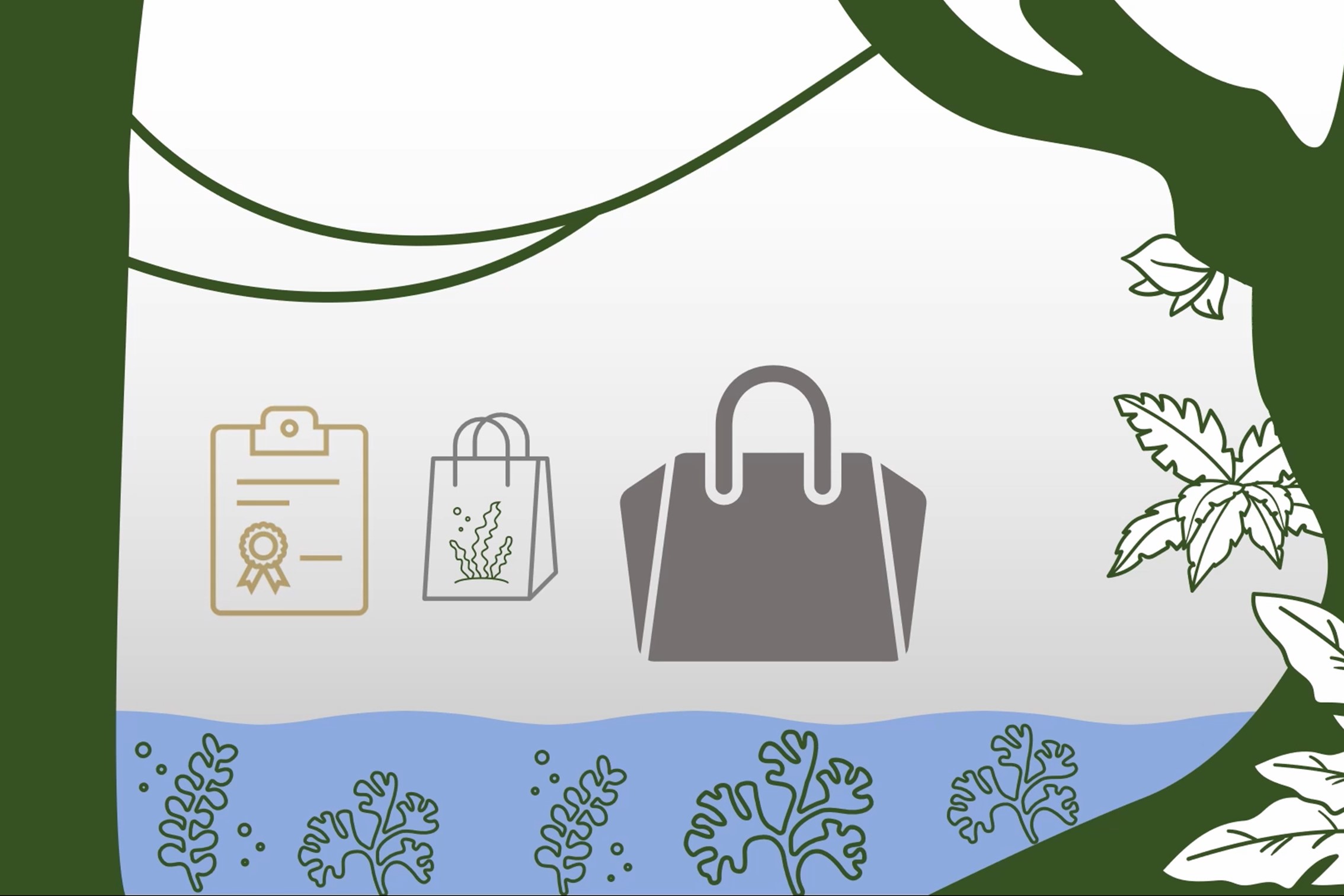
Algae as an enrichment of food diversity
Algae are used in a wide variety of foods. In addition to their high nutrient content, they can also contain substances that are harmful to health.
Algae are frugal, they mainly need sunlight, water, and carbon dioxide to grow. They draw nutrients they need for growth from their environment. These growth conditions make them very attractive as a food source because they can be grown in a space-saving way and with comparatively few resources.
Click here for the explainer video (in German)
Further information and literature on the video
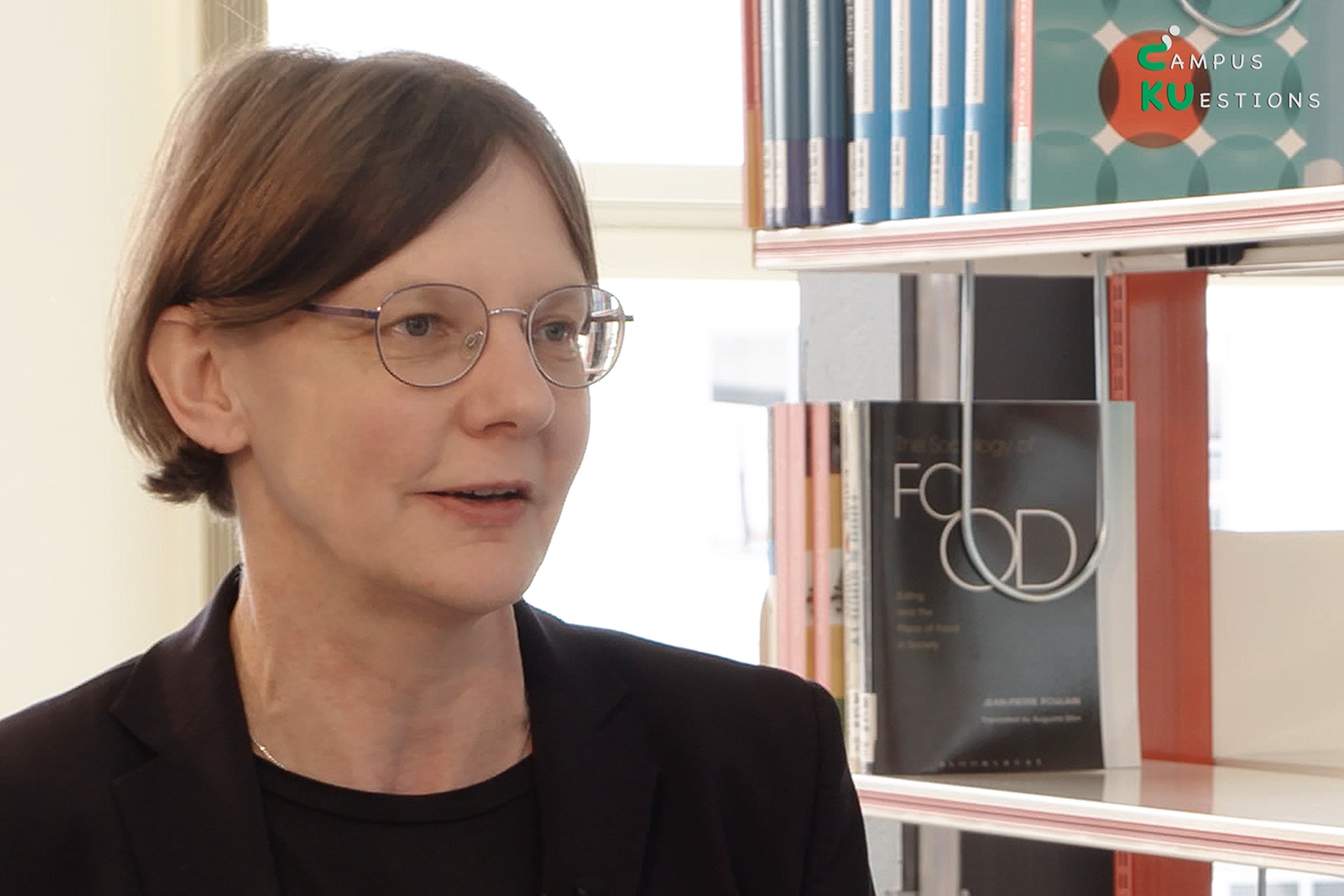
Algae as the food of the future
The interview with Prof. Dr. Susanne Baldermann from the University of Bayreuth is about algae in nutrition. Products made from algae are already being used in food in Europe today, e.g. gelling and thickening agents or colourings. Fresh algae will probably also end up on our plates more in the future, as they are interesting as vegan alternatives and there is already research into fish substitutes. Algae are rich in macronutrients such as proteins and unsaturated fatty acids and micronutrients such as carotenoids and flavonoids. However, some algae also have a high iodine content. The interview was produced by the Akademie für Neue Medien (Bildungswerk) e.V. and the University of Bayreuth for the project Ernährungsradar project.
Click here for the explainer video (in German)
Further information and literature on the video
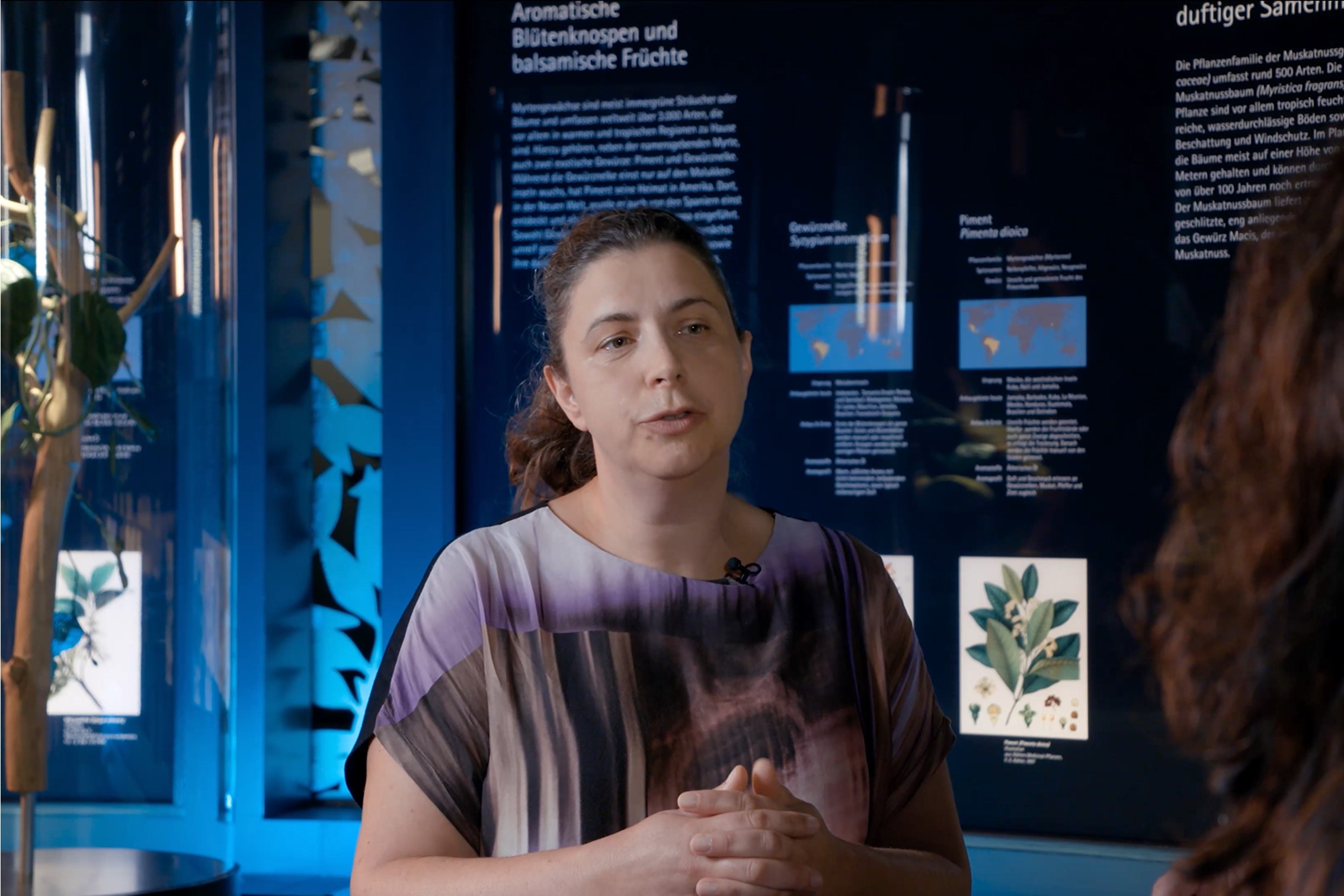
Plant communication and mixed cultivation as a future oppurtunity for food production?
In an interview with Prof. Dr. Corina Vlot-Schuster from the University of Bayreuth, the focus is on plant communication and the opportunities for our nutrition. Plants communicate with each other via odours, for example. These are recognised by other plants as messenger substances and trigger a reaction, e.g. an immune response. Prof. Vlot-Schuster is investigating how crops such as barley, wheat and tomatoes use messenger substances to protect themselves against infections. The findings should then be used to develop natural plant protection products. As a future opportunity, it is being discussed whether staple foods such as wheat could theoretically be grown in mixed cultivation instead of monoculture in order to enable natural plant protection. However, the realisation of mixed cultivation is difficult and requires further research. The interview was produced by the Akademie für Neue Medien (Bildungswerk) e.V. and the University of Bayreuth for the project Ernährungsradar.
Click here for the video podcast (in German)
Further information and literature on the video
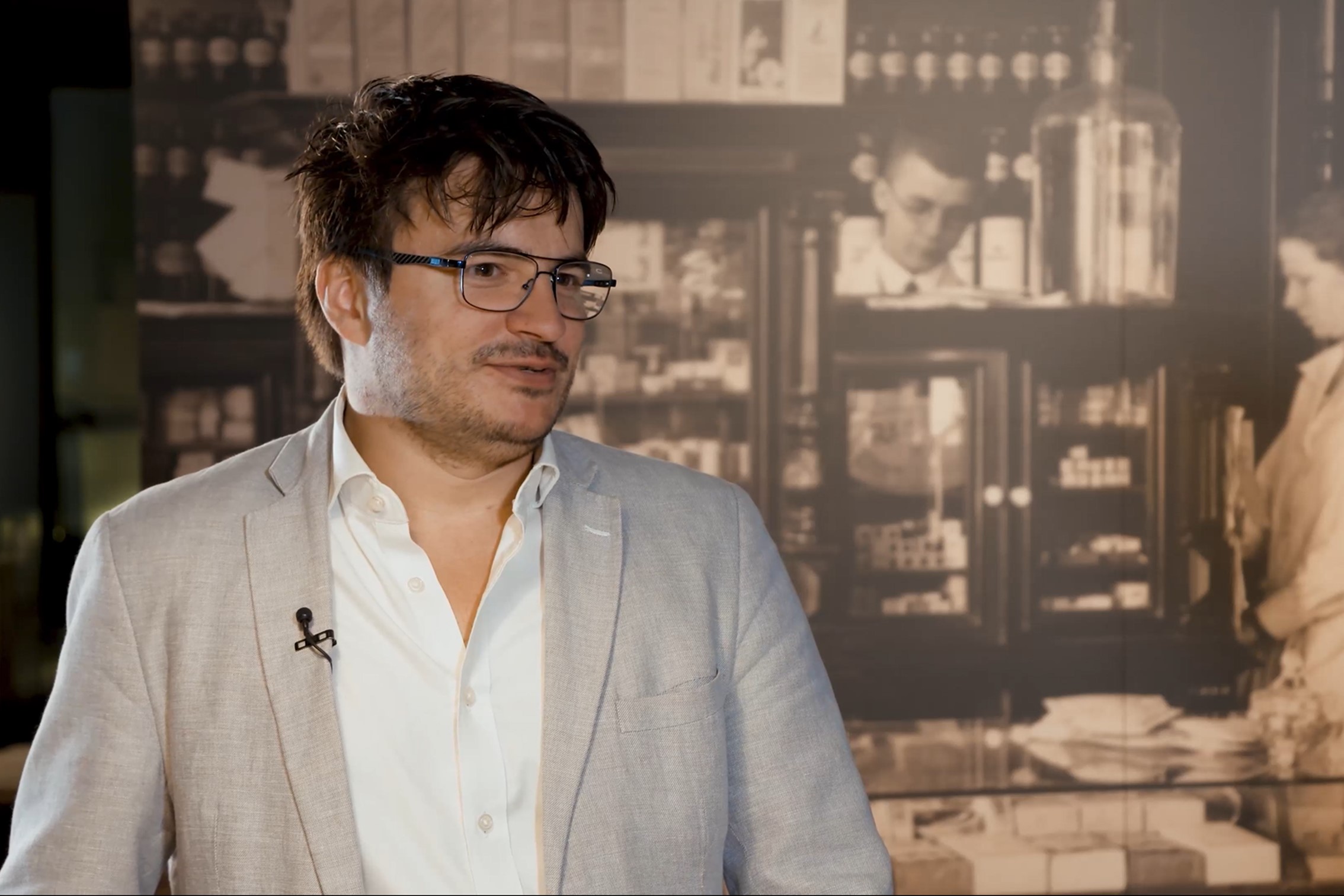
Insects - Novel foods in the European Union
The interview with Dr. Tilman Reinhardt from the University of Bayreuth is about insects, which are regulated as novel food in the European Union. Insects are a traditional food in many countries, but not in the European Union. In order to be able to place insects on the European market as food, they need to be authorised as novel foods. Some insects have been authorised for human consumption on the European market for some time, with further species being added at the beginning of 2023. Dr Tilman Reinhardt provides information on authorisations and general regulations on novel foods. The interview was produced by the Akademie für Neue Medien (Bildungswerk) e.V. and the University of Bayreuth for the project Ernährungsradar.
Click here for the video podcast (in German)
Further information and literature on the video
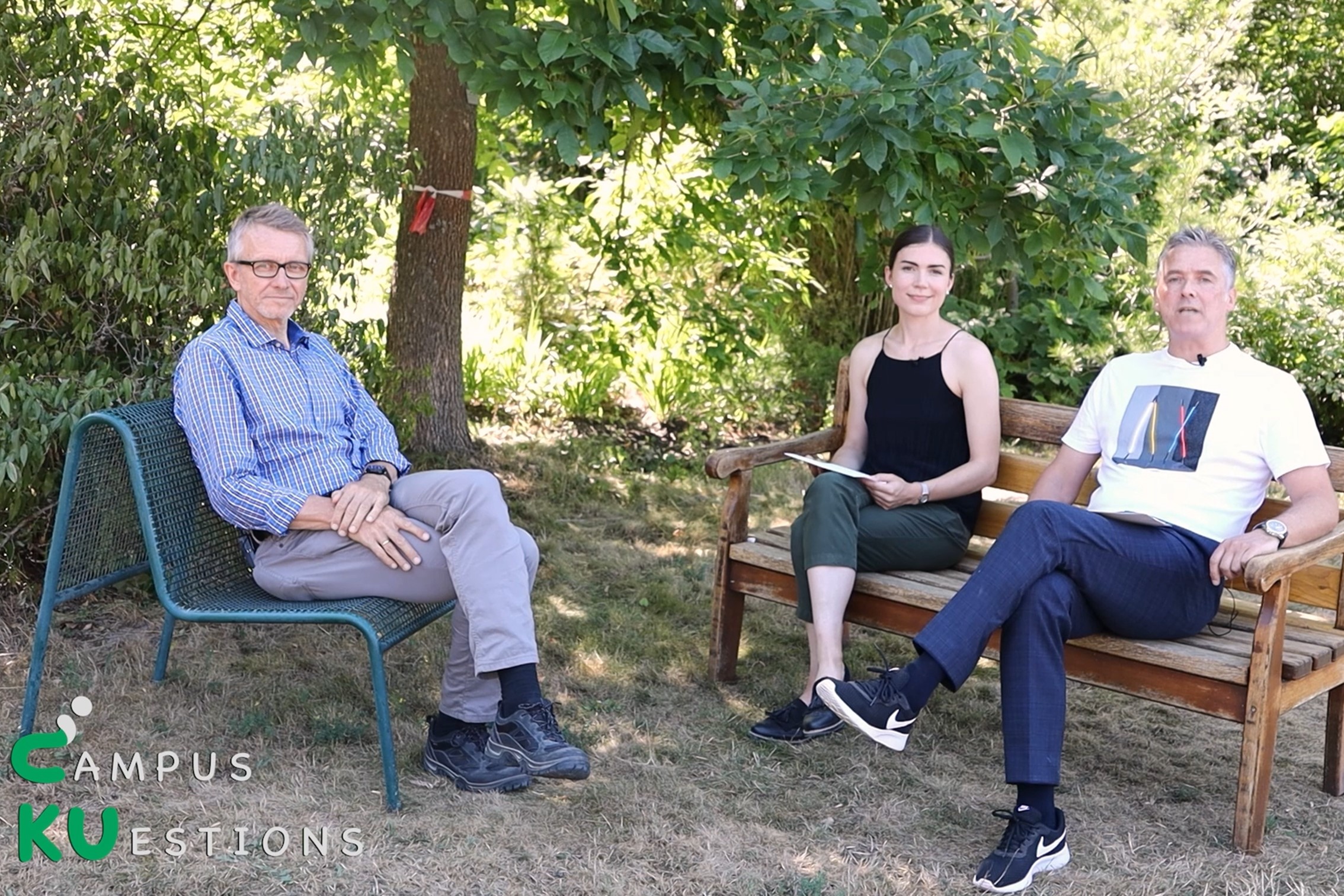
The influence of nutrition on the climate
The interview with Prof. Dr. Stephan Clemens from the University of Bayreuth is about food-related greenhouse gas emissions and sustainable nutrition. A significant proportion of greenhouse gas emissions can be attributed to nutrition and are generated, for example, in agriculture, food production or during distribution. Carbon dioxide, methane and nitrous oxide are gases that contribute to climate change. The concept of the so-called "Planetary Health Diet" recommends a plant-based diet that is both good for the climate and for people's health. A plant-based diet with a focus on more regional products can significantly reduce the impact on the climate. Animal and exotic products can still be consumed in addition to this diet, but only make up a small proportion of the diet. The interview was produced by the Akademie für Neue Medien (Bildungswerk) e.V. and the University of Bayreuth for the project Ernährungsradar
Click here for the video podcast (in German)
Further information and literature on the video
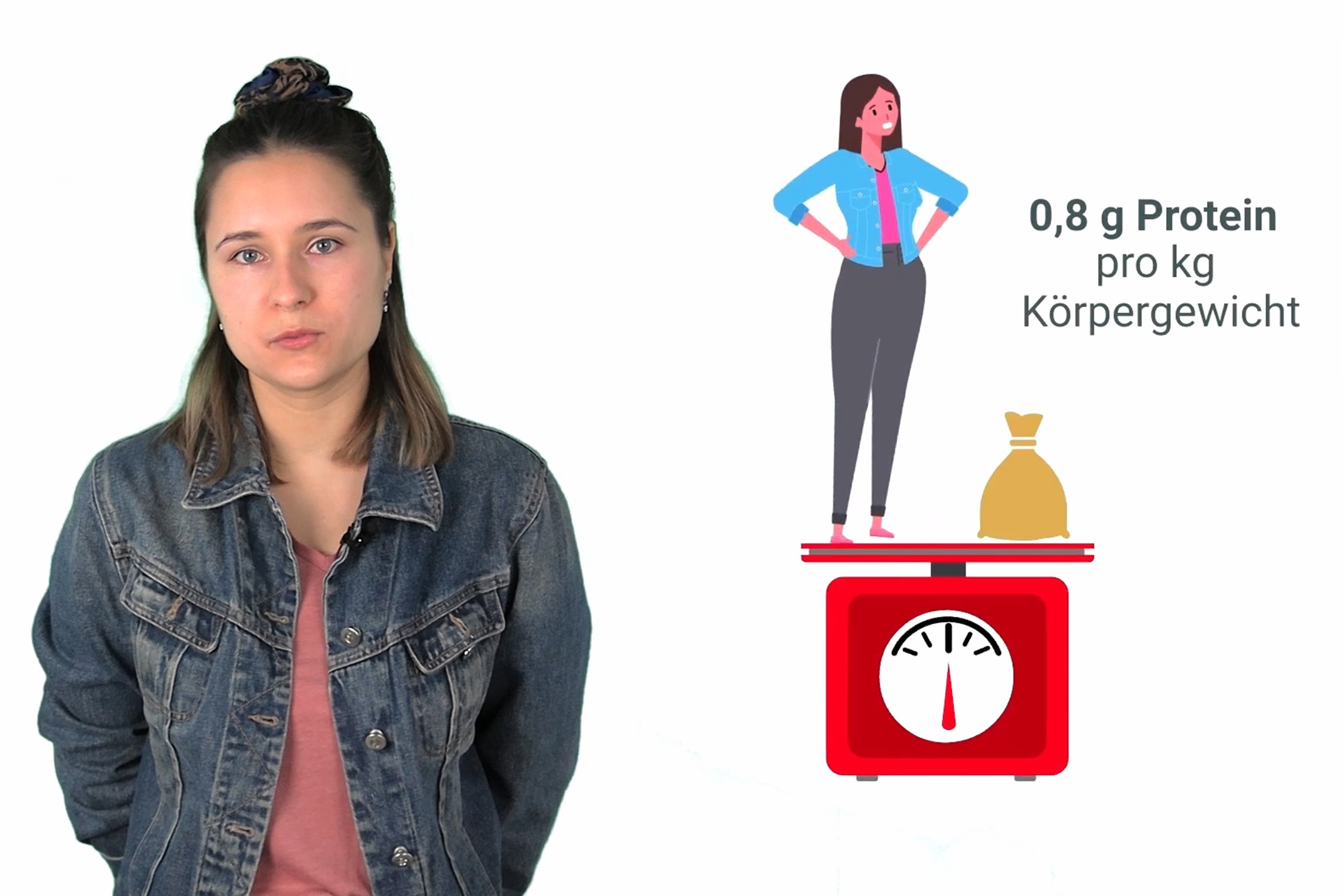
Protein quality - Is animal protein better than protein from plant sources?
Protein quality varies between plant and animal sources and can be improved by combining protein sources.
"Tofu is only for pea brains?", "Only chicken breast helps get rid of yours?", "And lettuce shrinks your biceps?". To answer these questions, stay tuned to the following video on the quality of alternative proteins.
Click here for the explainer video (in German)
Further information and literature on the video
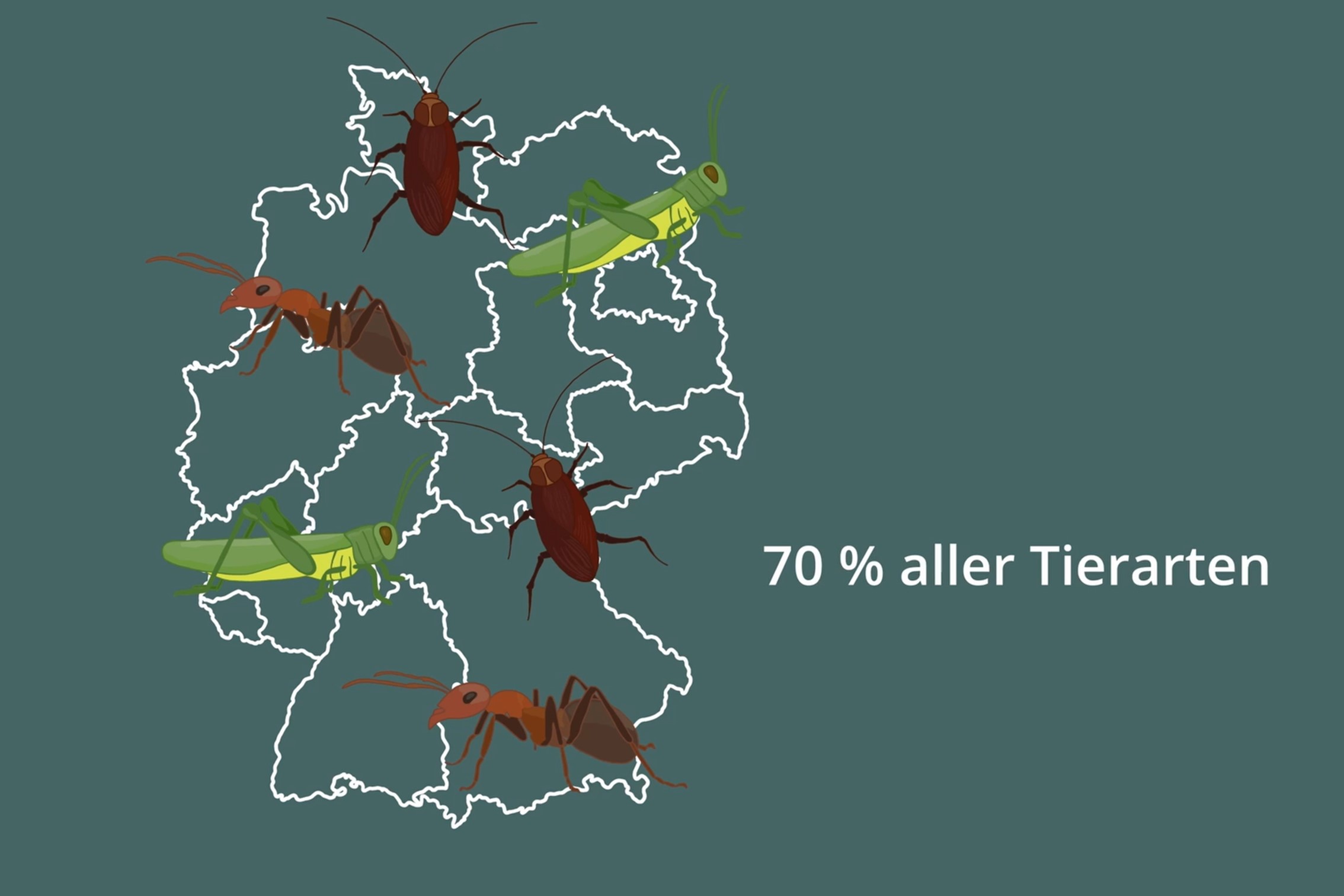
Insects - an option for a climate-friendly diet?
Insects are a novel food, are rich in protein and nutrients and can be produced in a climate-friendly way.
Roasted maggots with herb dip, ants and grasshoppers coated in rose oil or rather a delicious forest ant mash for dessert. Sounds good, doesn't it? Probably most of you feel a certain disgust at the thought of this food variation and can't imagine that our everyday diet could look like this or something similar in the future. But in this video, you can find out why this could be the case.
The current status of insects authorised as novel food in the EU can be found at the following link.
Click here for the explainer video (in German)
Further information and literature on the video
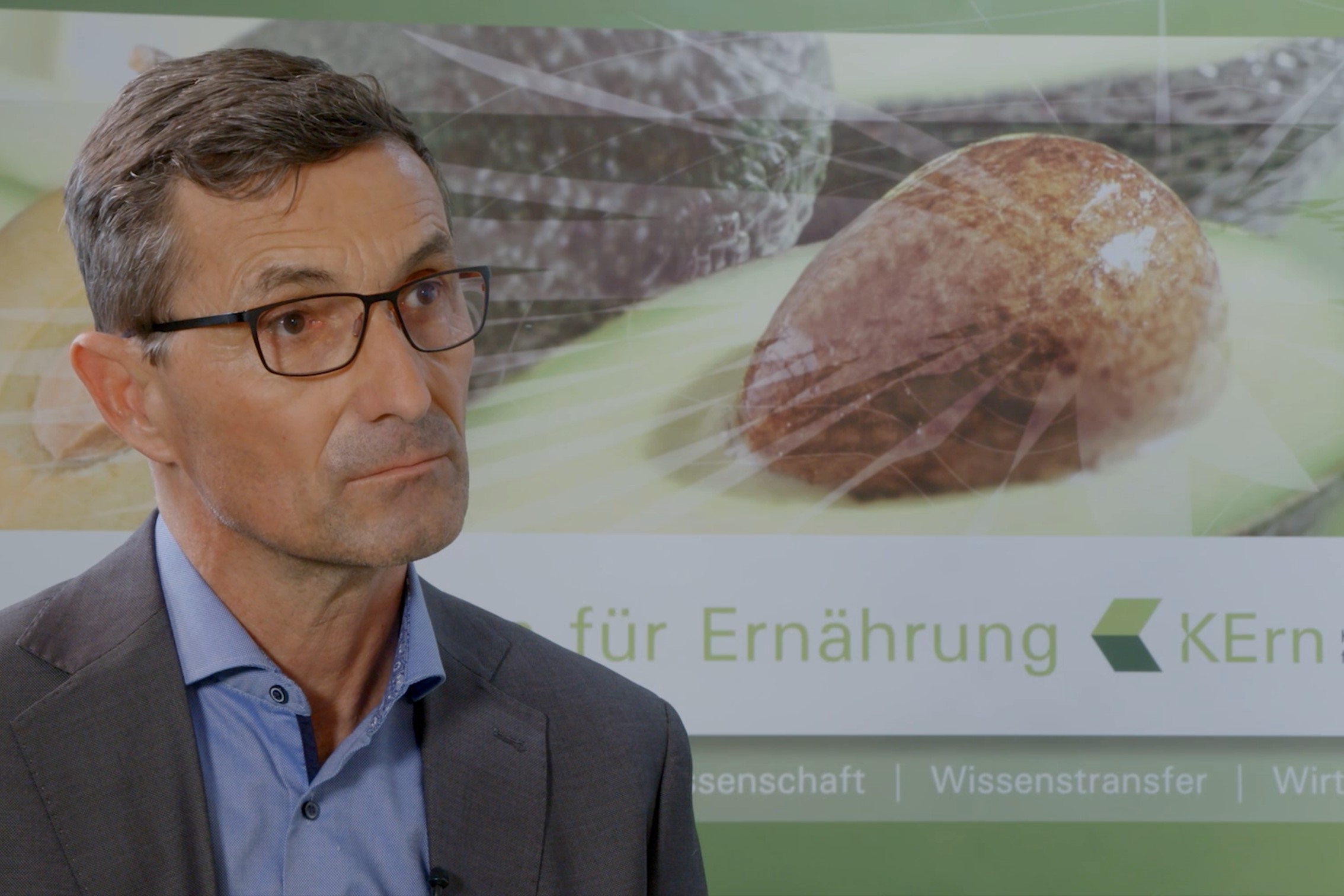
Planetary Health Diet - healthy and climate-friendly nutrition
The interview with Dr. Martin Kussmann from the Kompetenzzentrum für Ernährung is about sustainable nutrition that is good for the planet and human health. The planetary boundaries are playing an increasingly important role in the production of food, as resources are limited. The aim is to feed a growing world population in a healthy way without overburdening the planet. To achieve this, the EAT Lancet Commission recommends a plant-based diet that can be supplemented with animal components. In addition, global distribution problems in food production must be taken into account. A sustainable diet can vary in different regions of the world. Regional peculiarities can provide orientation and locally available resources should be utilised. The interview was produced by the Akademie für Neue Medien (Bildungswerk) e.V. and the University of Bayreuth for the project Ernährungsradar.
Click here for the video podcast (in German)
Further information and literature on the video
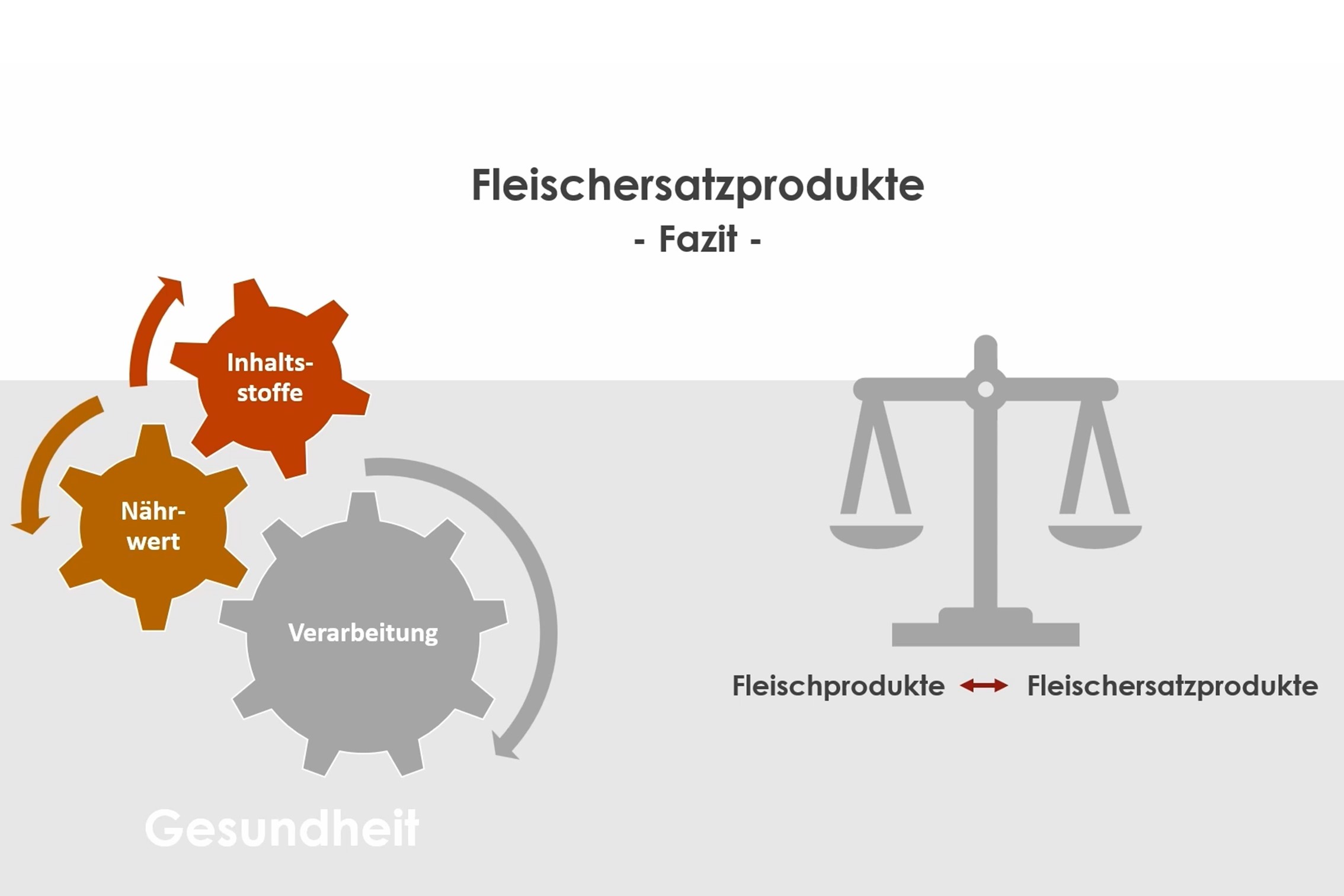
Meat substitution products - better for your health than meat products?
The added health value of meat substitutes depends heavily on the product, but is generally rather low. Everyone knows them: they look like meat products, they also resemble them in consistency and taste, but they are not! This video gives an overview of meat substitution products and how they compare to their animal counterparts in terms of health.
Click here for the explainer video (in German)
Further information and literature on the video
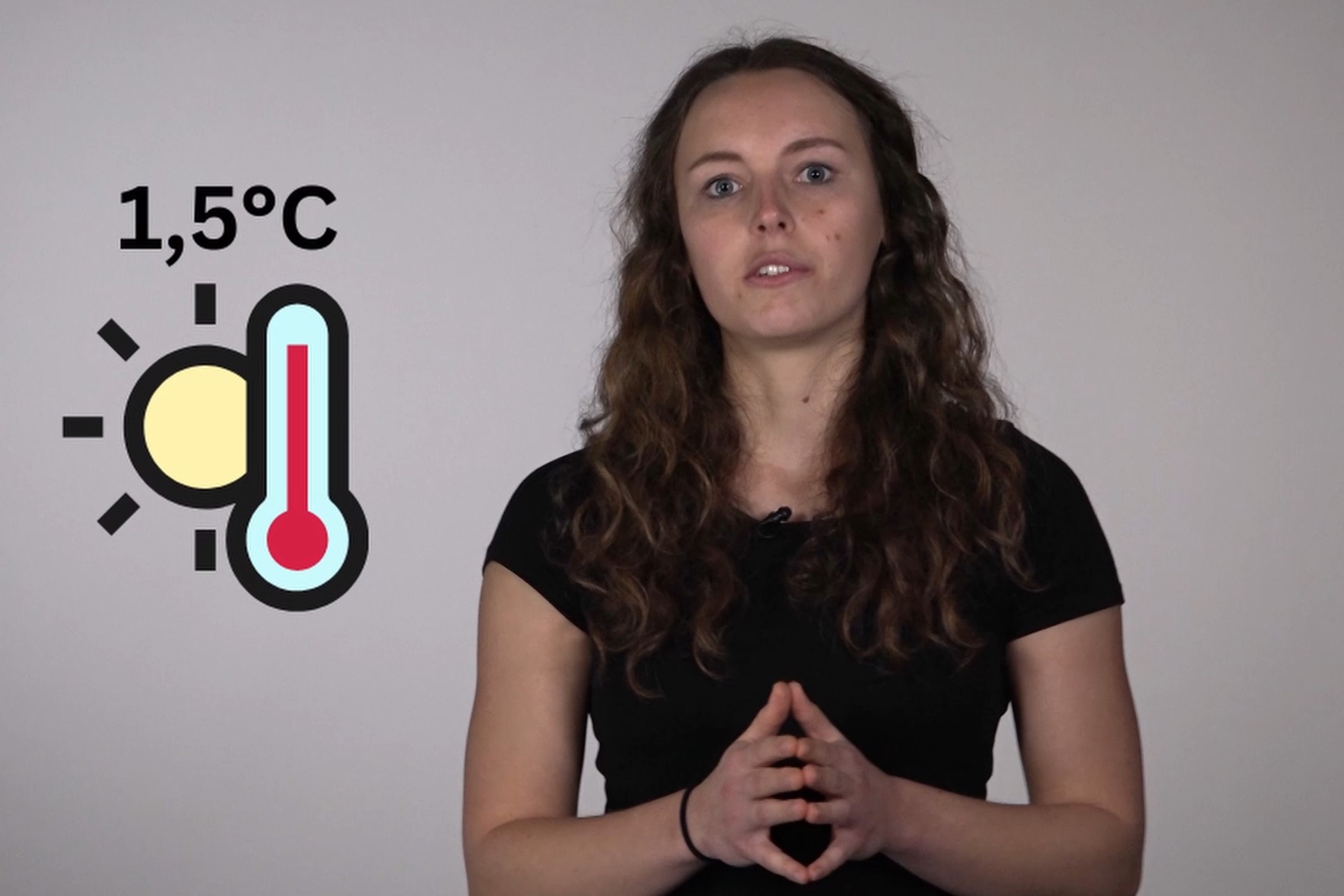
Climate protection and health with every bite - Planetary Health Diet
The Planetary Health Diet can keep society healthy, is individually customisable and makes a decisive contribution to climate protection.
In 2015, 37 experts from different disciplines came together to develop a diet that promises to feed ten billion people within the Earth's ecological limits, while also preventing about 11 million premature deaths worldwide each year.
Click here for the explainer video (in German)
Further information and literature on the video
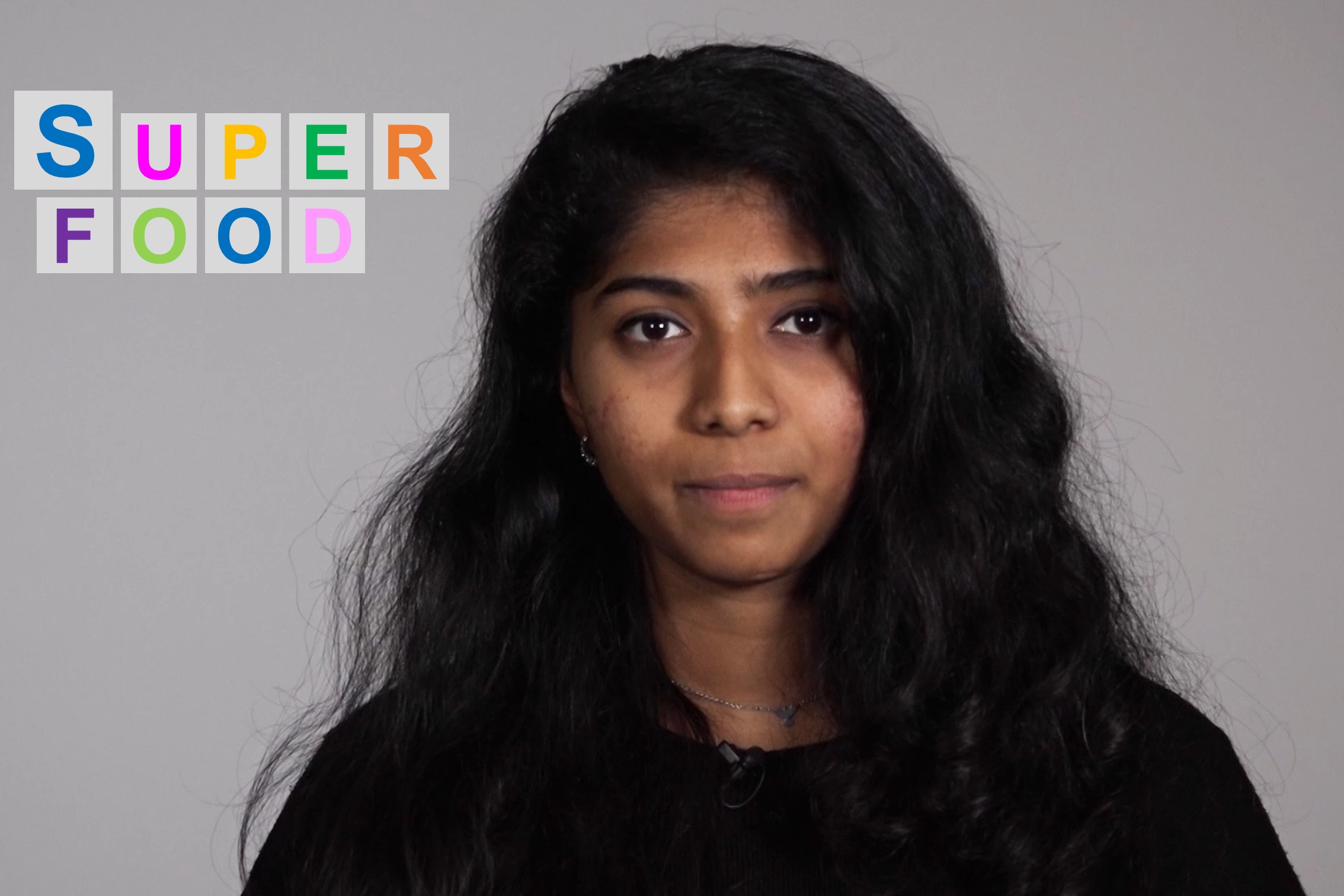
What are superfoods and how healthy are they really?
Superfoods often suggest special health benefits, but there is hardly any scientific evidence for their benefits.
What is interesting about the venture of the term ‘superfoods’ is the fact that a definition did not exist back then and doesn’t exist now. Let’s look at some of the hypes and trends around superfoods and what’s the real truth behind them.
Click here for the explainer video (in Englisch)
Further information and literature on the video
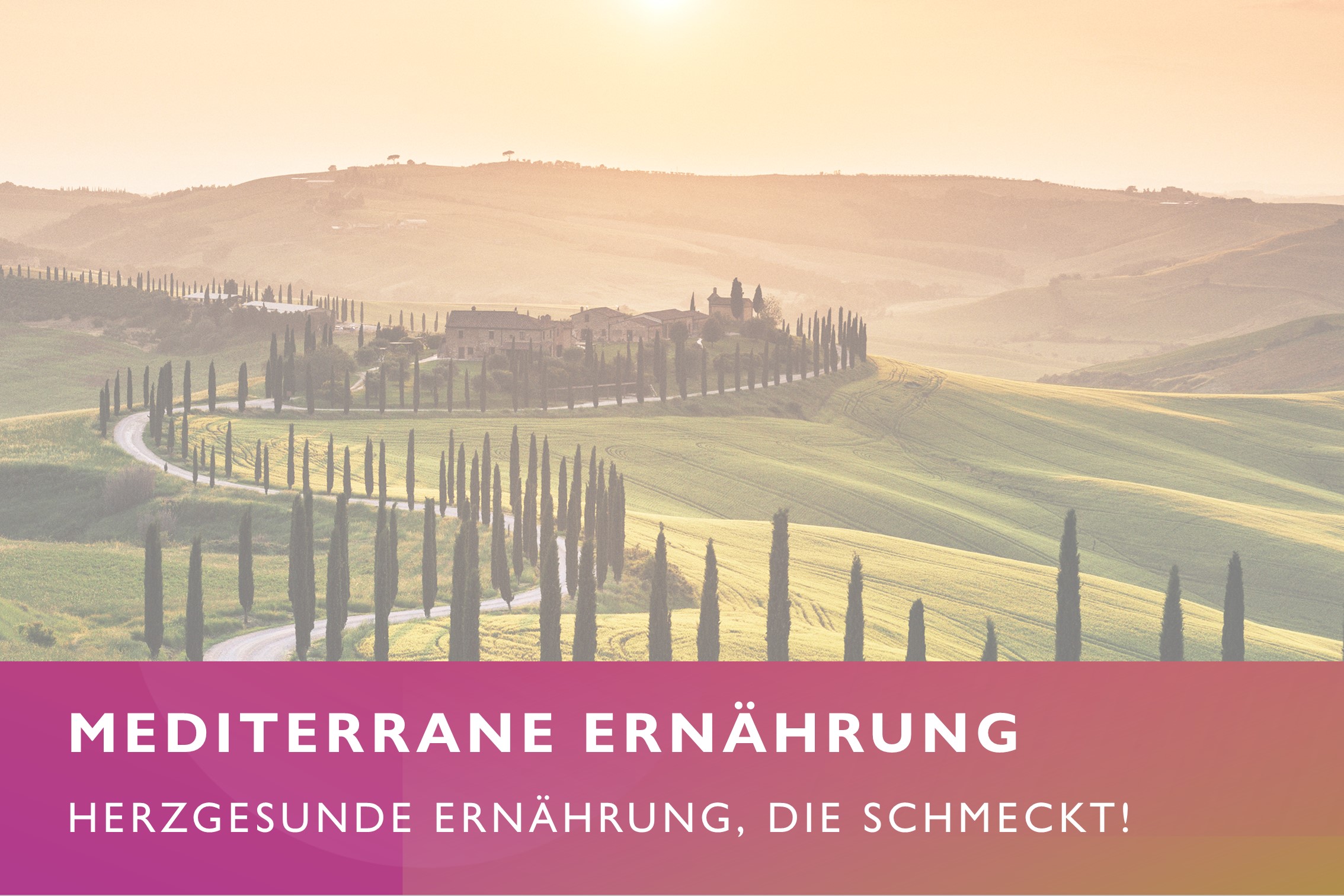
Mediterranean diet - a heart-healthy diet that tastes good!
The Mediterranean diet is a plant-orientated and varied mixed diet that can promote our health.
The traditional Mediterranean diet is very varied and almost no foods are excluded. As you can see in the food pyramid, the Mediterranean diet is mainly made up of plant-based foods such as grains, vegetables and fruit. This is why it is also called a plant-based balanced diet. The German Nutrition Society also recommends such a plant-based balanced diet.
Click here for the explainer video (in German)
Futher information and literature on the video
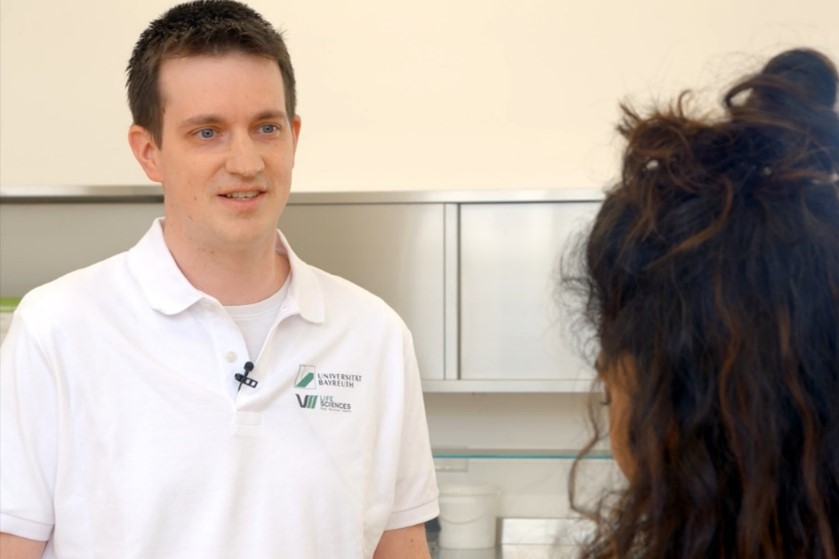
Designing food supply chains efficiently to reduce food waste
The interview with Prof Dr Christian Fikar from the University of Bayreuth deals with the challenges and potential of food supply chains. Prof. Fikar explains that food supply chains involve complex logistical processes that require transparency and coordination to minimise waste. He emphasises that uncertainties and delays are key problems that can be reduced through better use of data and artificial intelligence. He also emphasises the role of consumers, who can contribute to improving supply chains through conscious purchasing behaviour. He sees the challenges of regional supply chains primarily in their small-scale nature and the associated high logistical effort. Ultimately, he is optimistic that progress in logistics can contribute to achieving the global goals of halving food waste.
Date published online: 09/2024
Click here for the explainer video (in German)
Futher information and literature on the video
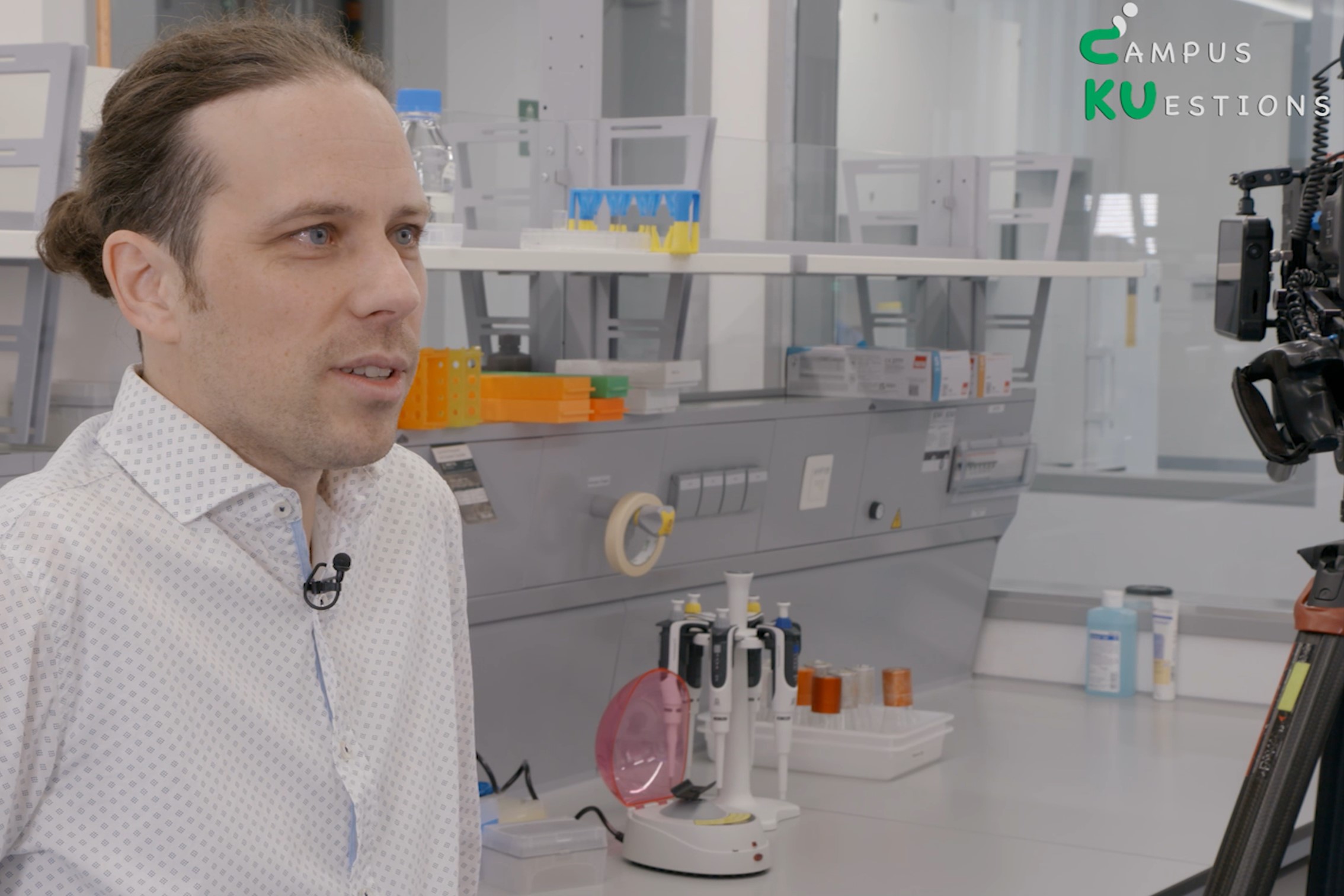
The gut microbiome as a guarantor of health and well-being?
The interview with Prof Gerald Lackner from the University of Bayreuth sheds light on the importance of the gut microbiome for our health. The microbiome performs key functions such as protecting us from pathogenic bacteria and producing important metabolic products. Diet plays a key role and can influence the gut bacteria. Prof Lackner explains how a varied, primarily plant-based diet strengthens the microbiome and has a long-term positive effect on health. New research approaches will also be discussed, such as individualised therapies with pro- and synbiotics and microbiome transplants. Visionary research into bioactive substances produced by microbes also promises exciting possibilities. Fundamentally, a conscious diet and a holistic approach are essential for a healthy microbiome and general well-being.
Date published online: 12/2024
Click here for the explainer video (in German)
Futher information and literature on the video

